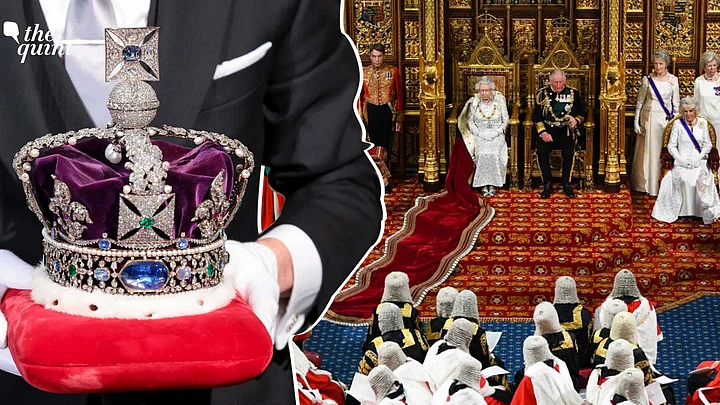Britain does pomp and pageantry to perfection. That was demonstrated to the world by the eleven days of mourning for the Queen, culminating in Monday’s solemn and a spectacularly choreographed funeral at Westminster Abbey and interment at Windsor Castle.
The huge crowds that turned out to watch the funeral procession, and earlier queued for many hours to file past the Queen’s coffin when she was lying in state, point to the reverence with which the Queen was regarded. King Charles is not so universally popular, though his dignified bearing and evident commitment to public service have got his reign off to a good start.
Relic of the Past
The ceremonial may be splendid, but does the Crown deserve a future? Why should a modern democracy cleave to a hereditary head of state? The monarchy is a relic of times past and perhaps, this is the moment to look more carefully about whether it should survive when other outdated institutions such as the Empire have been dismantled.
Indeed, this could be a desperately needed opportunity to look afresh at how Britain is governed. Even in a country so wedded to tradition, much of the apparatus of governance is outdated and no longer fit for purpose. We need a spring clean.
Religious Heads Rule the Roost in UK Parliament
Take the upper house of Parliament, the House of Lords. Its members are not elected – not even indirectly elected. Most are appointed by a public commission or nominated by the prime minister or by party leaders. So inevitably, there’s a lot of nepotism and cronyism.
Remarkably, there are still a few hereditary peers in the House of Lords – a throwback not simply to another century but another epoch. It gets even more bizarre. Twenty-six archbishops and bishops are entitled by their religious rank to sit in the House of Lords. All these Lords Spiritual, as they are called, are from the ‘established’ church, the Church of England. They include no Catholics, or Methodists, or Orthodox Christians, never mind Muslims or Hindus or Jews or Sikhs.
Archaic Arrangements, Decrepit Buildings Ail Premises
Britain is now a more secular nation than, say, India or the United States. Church attendance is low and organised religion is in its long-term decline. Yet we still have an established church, given legal and constitutional preferment. It doesn’t make sense.
In the House of Commons, procedures have been made a little more contemporary but there’s still no electronic voting in the Commons chamber. When the Commons is close to full, many MPs have to stand. There’s only enough seating room for 450 of the 650 MPs – and no place to keep or take notes. It feels so amateur.
And the ornate gothic architecture of Parliament – the ancient busts and tapestries gives an aura of implacable resistance to the modern; the fusty, antique buildings suck the energy and innovative spirit out of those who come to Westminster, determined to achieve change. No wonder Britain likes to be stuck in the past.
The Houses of Parliament are simply not fit to house a national legislature. The buildings are falling down, riddled with asbestos -- leaky, dusty and draughty. It will take many decades and tens of billions of pounds to modernise the Parliamentary estate. It would be better to turn the buildings into heritage centres and to follow the example of Scotland’s new Parliament and construct a new, purpose-built home for the Commons. And to find that new site outside London.
Governance in UK Needs a Reset
England is hideously over-centralised and the gulf between the relative prosperity of London and the more spartan post-industrial cities and town of the North and Midlands is a deepening political fault line. Moving Parliament out of an over-mighty capital city would help bring governance closer to the people.
And the first-past-the-post system used in British (and Indian) Parliamentary elections gravely distorts the popular will. In 2019, Boris Johnson’s Conservatives won a spectacular general election victory – taking 365 of the 650 Commons seats – with just 43% of the vote.
The Scottish Nationalists won 1.3 million votes and took 48 seats; yet the Greens, whose support is much more evenly spread, attracted 800,000 votes and have just one MP. Proportional representation is already used for elections to the Scottish Parliament, the Northern Ireland Assembly, the London Assembly and other bodies – it’s time that electoral reform was brought in for Westminster elections too.
And the monarchy? There is no substantial Republican movement in Britain at the moment (except in Northern Ireland). At the same time, the long-term trend shows a gentle decline in support for the monarchy, particularly among the young. Although it’s not a hot issue for them, many youngsters view the monarchy as irrelevant.
The Queen broadly observed the proprieties of a constitutional monarchy and if the new King similarly steers clear of political controversy – let’s see on that one! It's unlikely that there will be a swelling chorus demanding an end to the monarchy. But if we are looking anew at how Britain is governed, the monarchy needs to be within that remit.
As part of the modernisation project Britain so evidently needs, let’s at least opt for a low-key royal family with no more weekly audiences with the Prime Minister and an end to royals bedecked in army uniform; a more homely and less exalted institution.
And perhaps we could turn down the pageantry a touch too. It’s so much better to live in the present that the past.
(Andrew Whitehead is a former BBC India correspondent and also reported on British politics for the BBC. This is an opinion article and the views expressed are the author's own. The Quint neither endorses nor is responsible for them.)
(At The Quint, we question everything. Play an active role in shaping our journalism by becoming a member today.)
